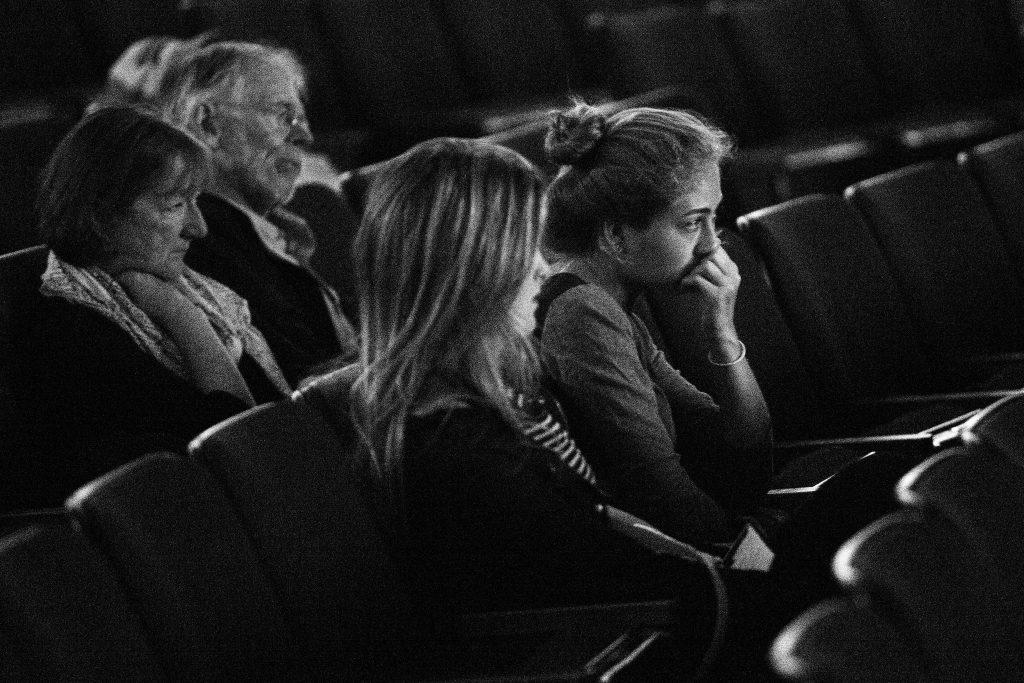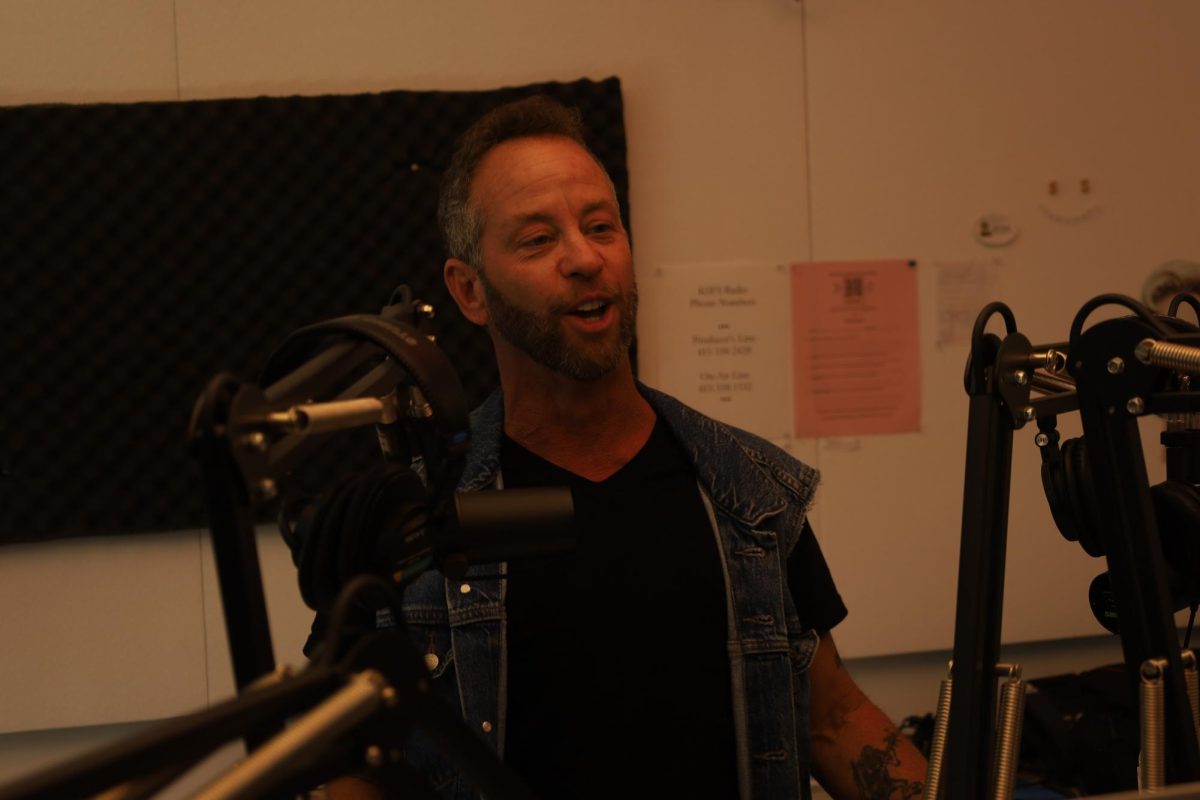Kit Gruelle, a survivor of domestic abuse, retold her story to an attentive audience Sept. 17 in McKenna Theatre during the screening of ‘Private Violence,’ a documentary about domestic violence against women.
After freeing herself from a life-threatening relationship with her husband, Gruelle said the experience became a motivating factor for helping other victims of abuse.
“One of the things I find deeply disturbing is the myths and misconceptions that still prevail about gender-based violence,” Gruelle said. “We still blame women for male violence, as if men have virtually no responsibility for the choices they make to be abusive, controlling and violent.”

The screening was part of SF State’s Constitution Day celebration, an annual two-day event honoring the anniversary of the signing of the U.S. Constitution. History professor Marc Stein organized the ceremony and helped chose this year’s themes: marriage inequality, racial police brutality and violence against women.
“The organizing committee discussed several different ideas and we settled on one being violence against women, which is very current, has a long and complex history and relates to constitutional rights and wrongs,’” Stein said in an email.
Domestic violence is explored in the film through the stories of two survivors– Gruelle, who eventually became an advocate for victims of domestic abuse, and Deanne Walters, a mother looking for justice for the abuse she suffered from her estranged husband.
“The abuse I suffered turned my life upside down,” Gruelle said in an email. “It took me a long time and lots of therapy to put the pieces back together again, it affected me mentally and emotionally.”
After her husband died in an accident at work, Gruelle said her new-found freedom inspired her to become an advocate for women who are victims of domestic violence, helping thousands escape abusive partners. In the past 30 years, Gruelle has worked as a community educator, helping law enforcement and other first responders, using a method called the Empowerment Model, she said.
“What it means to advocates is that it’s not our job to ‘manage’ victims or to tell them how to think or feel,” Gruelle said. “It’s our job to listen and support, period.”
Gruelle said she helps victims with things like leaving the abuser, assistance with children, court appearances and access to allied professionals. Using campaigns like the film, Gruelle said she hopes to change current beliefs regarding domestic violence.
SF State Sex and Relationships Psychology Professor Ivy Chen said anyone can be a victim of abuse, including men, women, and those in same-sex relationships. Men are seen as strong and masculine, because of this most crimes involving men being victims of abuse go unnoticed and are treated as unimportant, Chen said.
Anthony Palmer, 26, an SF State U.S. history graduate student who attended the film screening, said domestic violence is an important issue to discuss both on and off university campuses. He said he believes flaws in America’s laws and systems perpetuate domestic violence and make it difficult for victims to seek help.
“There is a lot of domestic violence and I think often times the inherent patriarchy in our laws make it so that it doesn’t register as much in our records,” Palmer said. “Men are going to face the repercussions of law enforcement a lot less frequently because we have inherent gender bias in our society and that’s reflected in the law.”
Erin Fuller, a 19-year-old sophomore majoring in business and marketing, said that her grandmother was a victim of domestic violence who was trapped in the relationship because she couldn’t financially support her four children on her own.
“She ended up leaving, which I find very inspirational, especially for me and my mom,” Fuller said. “I think for a lot of women in that situation, who have families, they feel like they can’t support their family so they don’t leave.”
Despite many problems with the understanding and handling of domestic abuse, Gruelle said there have been recent improvements.
“We do have more people in the criminal justice system that take violence against women seriously, and more people seem to recognize that it is not acceptable behavior, but we still have a long, long way to go,” Gruelle said.





